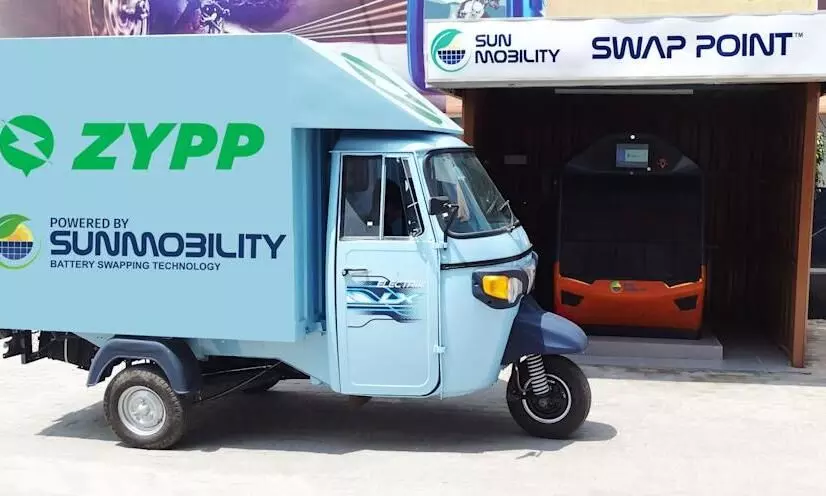
India's "battery-swapping" for EVs has slim chances: expert
text_fieldsWashington: Indian government's proposed policy of "battery swapping" to boost electric vehicles (EV) could be a fine idea but might not work beyond limitations, according to an expert from the automobile industry, PTI reported.
Arthur Wheaton, the expert and director of labour studies at Cornell University's School of Industrial and Labor Relations, said the policy needs the backing of sufficient government involvement and subsidy since carmakers do not share the technology regarding batteries. Interchangeable batteries mean a lot of redundant batteries sitting around, he said. It would be costly since lithium and cobalt have a limited supply. The idea could be experimented with during inevitable situations, he said.
Wheaton said that there aren't many products that are consistent in automobile brands but GPS power supply plug or valve stem for tires. There are many constraints in India in the automobile field, he said. Many brands have tried and failed, solving the affordability problem across the country, he added.
However, Mahindra and Mahindra Executive Director (Auto and Farm) Rajesh Jejurikar welcomed the "battery-swapping" policy and said that it would be a practical alternative to adopt EVs. He added that Mahindra looks forward to working with the government to implement the policy.
Mercedes-Benz India Managing Director and CEO Martin Schwenk also welcomed the policy and said that it was a step in the right direction as it would help a limited segment. Further, Automobile dealers' body FADA's president Vinkesh Gulati said battery-swapping, as well as energy-as-a-service, will accelerate the transition towards clean mobility.
During the Budget 2022-23 speech, Finance Minister Nirmala Sithraman had announced the government's battery swapping policy intended to boost EVs in the country. Minister said that the private sector would be encouraged to set up sustainable business models for batteries to improve the EV ecosystem. A battery swapping policy could address space constraints for setting up charging kiosks.






















